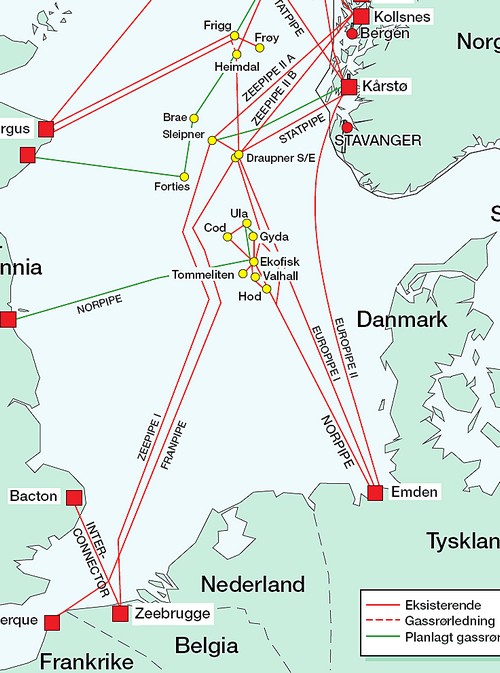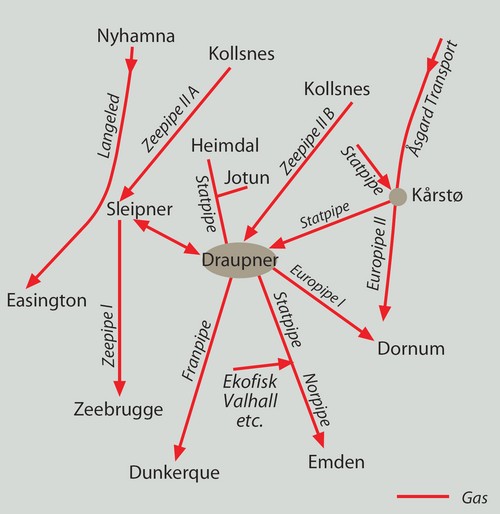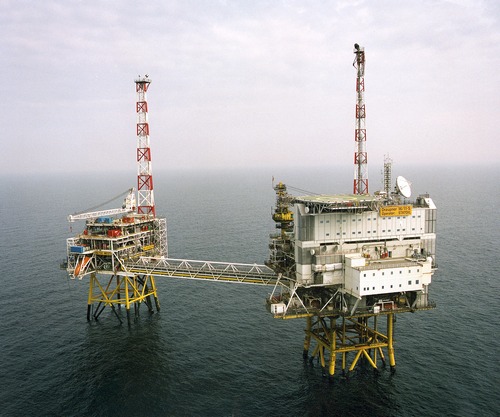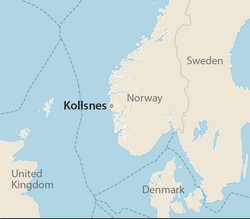Zeepipe II B runs from Kollsnes but terminates at the Draupner E riser platform. This 40-inch-diameter leg became operational in 1997 and is about 300 kilometres long.

The Zeepipe system from Kollsnes to Zeebrugge. Map: Norwegian Petroleum Directorate
Draupner gas hub
No gas, condensate or oil are produced at Draupner. It functions instead as an important transport hub for gas arriving through Statpipe from Kårstø and Heimdal and through Zeepipe from Troll. The gas is sent on from Draupner through Europipe I to Dornum, Statpipe to Emden and Franpipe to Dunkerque. It can also be routed via the Zeepipe P51 link to Sleipner East and through Statpipe to Heimdal.
Installations comprise the Draupner S and E riser platforms, supporting seven risers with diameters from 28 to 48 inches. Standing in block 16/11, these structures rest on steel jackets in 70 metres of water. Their most important functions are to check the pressure, volume and quality of the gas, and to launch and retrieve cleaning and inspection pigs. Transport capacity through Draupner is 130 million cubic metres per day. Gassco is the operator, with Statoil as the technical service provider (TSP).

Draupner gas hub
Draupner S
This platform was installed in 1984 as part of Statpipe, and became operational the following year. A bridge links with Draupner E. Its original name was Statpipe 16/11-S.
Draupner E
The platform was installed in 1994 as part of the Europipe I development from Sleipner East to Emden in Germany, and became operational in 1995.

The Draupner platforms, with Draupner S to the right. Photo: Øyvind Hagen/Statoil
Map

Click on the map to go to Petroleum Map
Facts on Zeepipe IIB
| Operator | Gassco |
| Development operator | Statoil |
| TSP | Statoil |
| Operational |
1997 |
| Length |
300 km |
| Capacity |
71 mill scm/d |
| Diameter |
40 inches |
| Owner | |
| Gassled | 100% |
Facts on Draupner
| Operator | Gassco |
| Development operator | Statoil |
| TSP | Statoil |
| Operational |
1984 |
| Block |
16/11 |
| Capacity |
130 mill scm/d |
| Owner | |
| Gassled | 100% |




